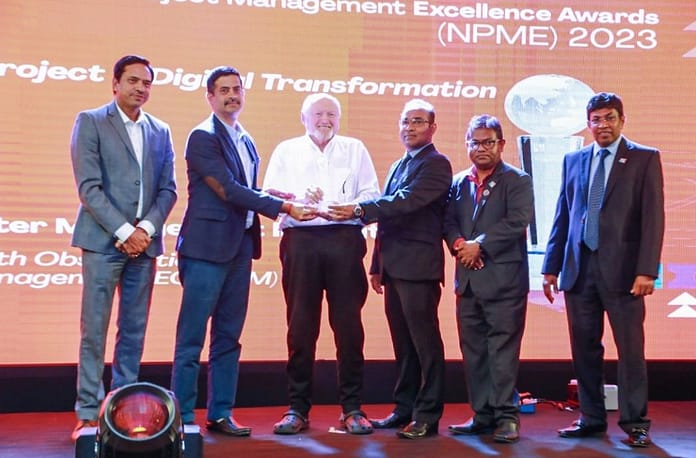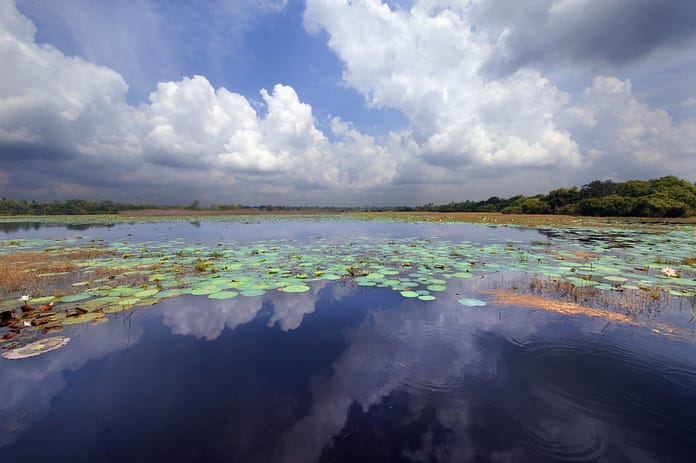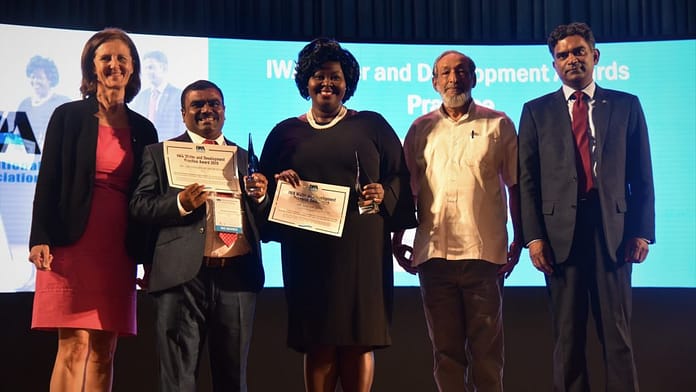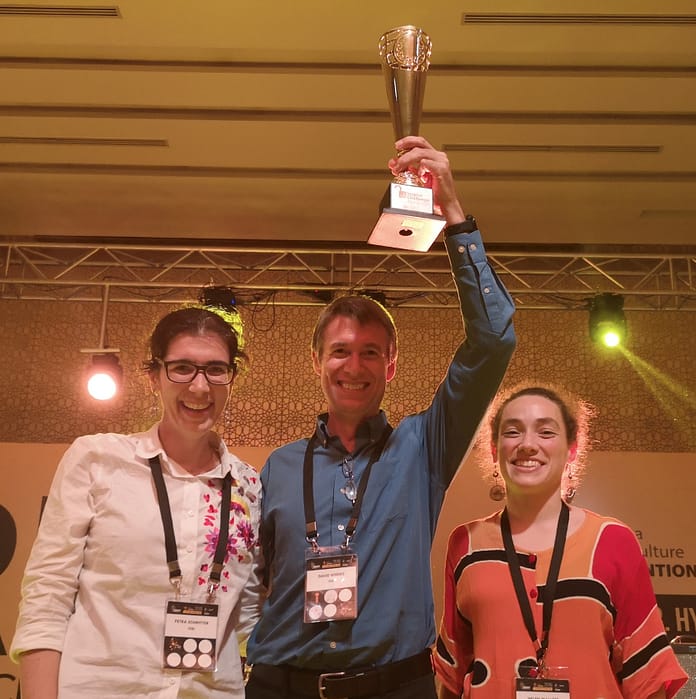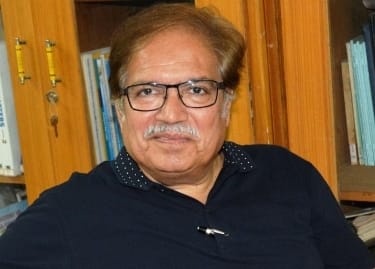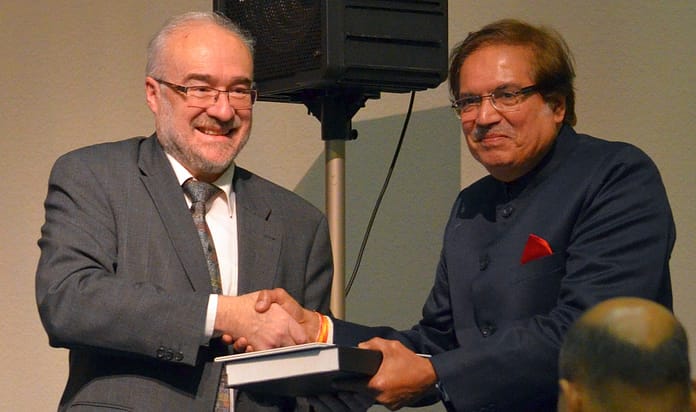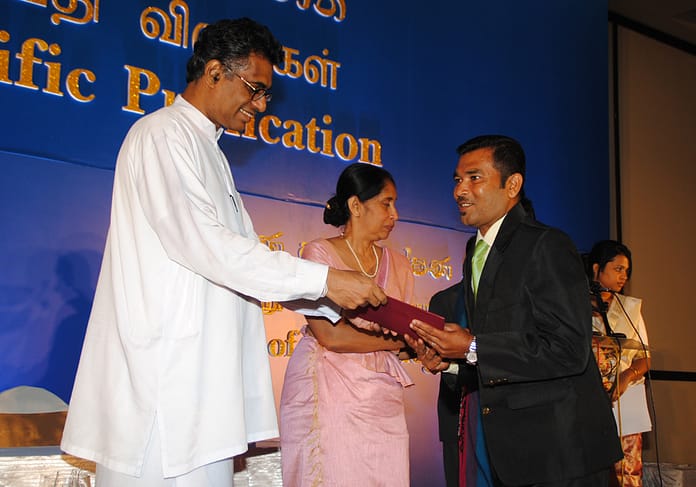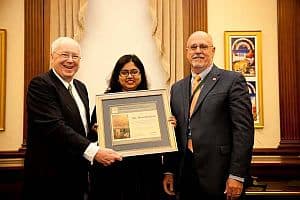Kusum Athukorala, Chair of NetWater and the Sri Lanka Water Partnership, is the recipient of the ‘Women in Water 2012’ award by the International Water Association (IWA). The award, presented on September 19, 2012, at the World Water Congress held in Korea, recognizes Ms. Athukorala’s long association with, and deep commitment to, gender-related issues in water.

Photo: Keith Hayward, Water21
In her speech during the ‘Women in Water’ session at the Congress, Ms. Athukorala stressed the importance of mentoring in her career and noted the need to encourage women to participate, suggesting that IWA’s ‘global outreach and prestige can be an enormous catalyst in changing things’. She also called for an approach ‘less of the rhinoceros in a glass shop’ to gender equity, suggesting, “Forget gender if it raises hackles. Call it optimization of human resources.”
“The role of women has been recognized globally but needs to be accepted at a local level, with adequate investment being made in capacity building. Recognizing women’s role in water enhances water security and leads to democratization of decision making. If we want to strengthen communities to face up to the current crisis in water, both men and women must be supported to be fully involved,” declares Athukorala.
Previously experienced in social science and rural development, Athukorala first started her work in water in 1988 at the former International Irrigation Management Institute (IIMI) – now the International Water Management Institute (IWMI). She worked in the participatory management of farmer organizations at a very early stage, at a time when such work was, in her own words, “anathema to many people.” It was then that she realized that much water-related work contributed by women went largely un-recognized. This prompted her to do a study on gender ideology titled, ‘Women and Irrigation’, which explored the access and control of resources by women and labor participation differentials. In 1996, she was invited to present a paper on ‘Gender and Water’ at the Stockholm Water Symposium, and was also nominated the same year to the steering committee of the newly formed Global Water Partnership (GWP). Her international involvement in water management led her to co-found two other international organizations – SaciWATERs based in Andhra Pradesh, India, and Women for Water Partnership based in the Hague, the Netherlands.
IWA is a global network of 10,000 water professionals spanning the continuum between research and practice, and covers all facets of the water cycle. One of IWA’s objectives is to recognize and promote women’s partnership and career development to higher management.
Source: http://www.iwmi.org


